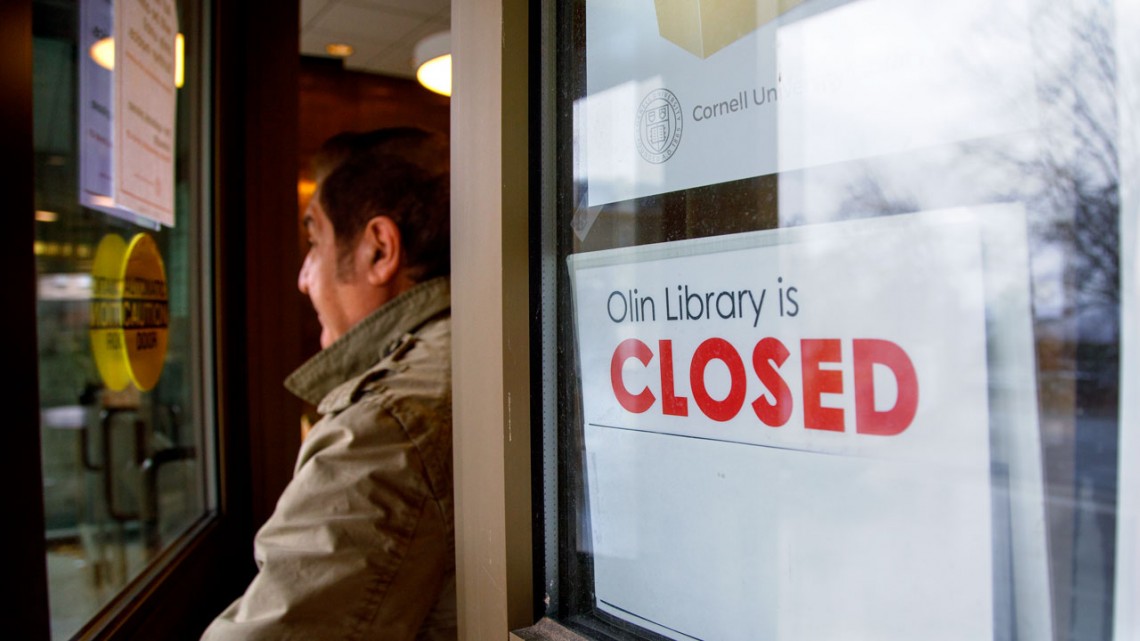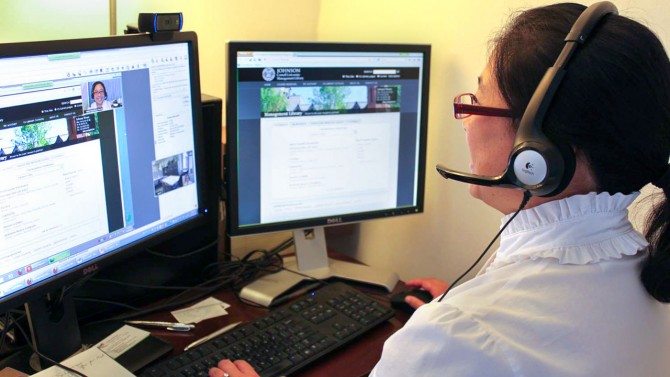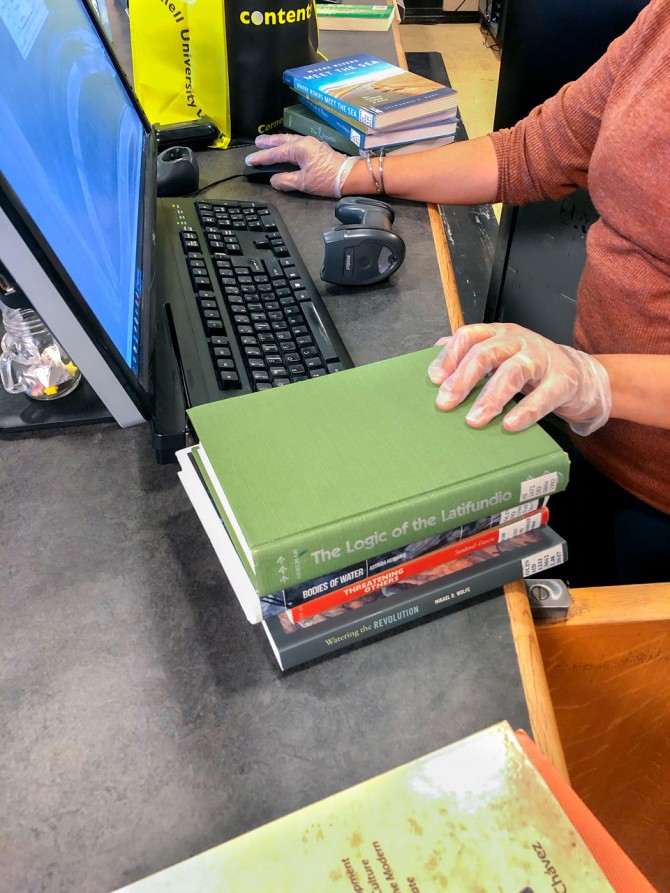
Olin Library is closed to visitors after moving to online-only resources.
Library expands remote services for Cornell community
By Daniel Aloi
Amid the disruption caused by the COVID-19 pandemic, Cornell University Library staff are working to support students, researchers, faculty and the campus community. Library users will continue to have access to library materials and expertise through a range of virtual and other services, such as a guide for faculty members who are ramping up for online learning.
The university suspended classes Friday, March 13, with virtual learning to begin April 6, after spring break. An announcement March 17 stated campus libraries would now be “online only” and physical locations would remain closed to the public, and open only to library staff to continue needed services.
“We are absolutely committed to continuing to support the Cornell community, even with our facilities being closed to the public due to the imperative for social distancing,” said Zsuzsa Koltay, director of library communications. “Naturally, our virtual services and digital collections are accessible; and we are working on putting into place ways to access the circulating collections.”
Over the weekend, the library focused its efforts on staffing and redistributing resources to support virtual services.
During this time, the Cornell community is encouraged to check the COVID-19 Library Service Updates page regularly. The Ask a Librarian and chat services can field other questions from users.
“Our virtual reference service has picked up fourfold,” Koltay said.
The chat service “is fielding many questions from students and faculty around the world,” said Bonna Boettcher, director of Olin and Uris libraries as well as the Music and Mui Ho Fine Arts libraries. “We have doubled our staffing to keep up with demand. The links to Ask a Librarian have also been made more prominent on the library websites so that patrons may more easily contact library staff. I think that the increased volume shows just how much our users miss us. We miss them just as much.”
Fees for ScanIt document scanning services have been suspended for those needing book chapters or articles scanned from the collection, or from interlibrary loan items when available.
In addition to expanding support for reference services, a library team led by Christina Sheley has prepared a guide to help faculty who are preparing to teach online, Boettcher said. The Library also offers tips for users off-campus.
“Subject librarians are evaluating their most frequently used resources, identifying the ones best suited for remote use,” said Leah Dodd, lead research services librarian at Olin and Uris libraries. “Some are preparing tutorials on how to use these resources. Others are negotiating contracts for simultaneous use of e-books for our students. Teams from across the Library are working together to provide remote access to quality materials.”
On the contract negotiation side, acquisitions and e-resource specialist Jesse Koennecke and Kizer Walker, director of collections, “have moved mountains for our students,” Dodd said.
Many e-books and audiobooks, not limited to academic titles, also are available for download from the library.
While exhibitions across the library system are now closed to the public, many are viewable as online exhibitions, including displays featuring historic maps, “Notes from Cornell Typewriters,” and special exhibitions from the Division of Rare and Manuscript Collections.
“I have been immensely impressed with the dedication, creativity and hard work that the library staff has been demonstrating in service of the Cornell community under these difficult and fast-changing circumstances,” said Gerald R. Beasley, the Carl A. Kroch University Librarian. “If it can be done, it’s being planned and being done.”
Media Contact
Get Cornell news delivered right to your inbox.
Subscribe


